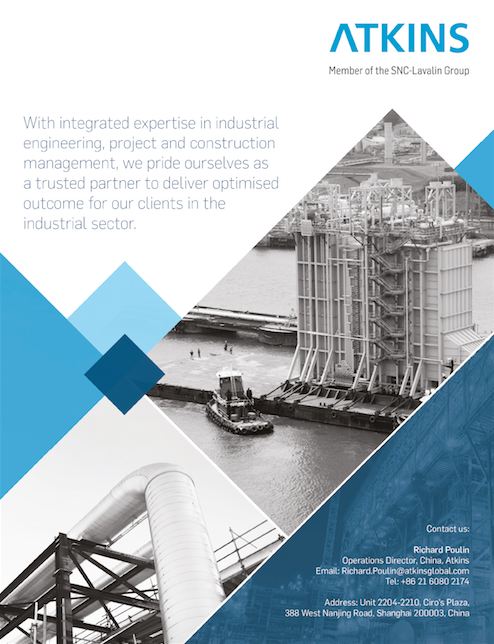One of the greatest leadership lessons Bei Zhong, General Manager Asia–Pacific of LORD Corporation (now part of Parker Hannifin Corporation), has ever received came from her previous boss.

Gareth McAllister, former President Asia–Pacific of the global technology and manufacturing company, has always had a firm view of the role of a leader, and that belief has carried through to inform Bei’s career even today. “Leaders drive the culture and the culture drives the result,” she says.
“A leader isn’t just a manager, so we need to change the culture of the company and the culture of the team. It changes their mindset and their behaviour, and then delivers outstanding results. That is the leadership I pursue, as well as developing and uncovering the potential of your team members. That’s what motivates me to work day in, day out.”
Throughout her career, Bei has placed an emphasis on team development, and this revolves around that concept of ensuring her team has the right mindset. In every role in every company she’s worked in over the past few decades, the development of a strong team has been one of her central priorities. The same applies to LORD Corporation.
“Many of the team members I’ve worked with didn’t see their potential,” she reflects. “I’ve had quite a few team members who were very difficult to develop. So changing their mindset around that is another key area – a new mindset unleashes the potential. It’s not about technical skills, as they can spend time to develop those, but you need, as a leader, to change their mindset.”
Another element to her team development mission is an effort to understand the deeper motivations of her employees. Why they joined, what they enjoy about their jobs and how they can improve themselves are all important questions in this process.
For Bei, it’s not just about career aspirations, even as she acknowledges that some may simply view a salary as incentive enough. It’s about having a deeper conversation around unmet needs, and what each individual wants out of their role – that, she says, is the first step in any professional development.
There are a number of core values that Bei believes attract and keep talent at the company. “The two key elements are trust and empowerment,” she says.

“You have to trust the team that you manage and give them freedom, especially gen X and Y. Younger workers care about their achievements and their fulfilment, so you need to give them space and the freedom to dream bigger. Let each of them perform their role. For senior leaders, it’s the same.
“If the boss starts micromanaging employees, I don’t think the employees will be very happy or motivated. I’m very flexible on the way my team members work. We start with the same purpose. When we work on a certain project, we need to understand the common goal. I manage them during critical steps, the key milestones, but with the details, I don’t step in, I don’t micromanage.”
In fact, Bei says that the culture of innovation, collaboration and care – an almost-familial culture – was what originally drew her to LORD Corporation. From 2013, after a seven-year tenure with GE Industrial Solutions, she’s held various roles within LORD, culminating in a responsibility for the company’s Asia–Pacific presence.
As a high technology and innovation company, we work with our suppliers from a very early stage.
It’s a region that incorporates three major areas of business for LORD, which represent a huge potential for growth: conventional passenger vehicles, aerospace and heavy machinery and, perhaps most critically, electric vehicles.
The company is the key supplier to many of the latter industry’s key original equipment manufacturers, and as EVs continue to grow in popularity, so too will its market. “For the EV market, I see huge potential,” Bei says.
“I truly believe it will change and transform our lifestyle. Autonomous driving, 5G and those new technologies. They will change our mobility and our lifestyle, and that will bring us tremendous opportunities, not only for LORD, but for the entire market. This year, China will have around one million EV cars, and in the next few years, we’ll be up to five million. Our business for the EV market is booming – double growth every year.”
Some of the company’s products in the thermal management field are central to EV battery production, and it also provides coatings, sensors and adhesives for EV production. Bei says the development of such products are a collaborative process, with LORD working alongside partners in the design stage to benefit the entire supply chain.
For the EV market, I see huge potential. I truly believe it will change and transform our lifestyle.
An approach like this, that sees more of the industry working together, is no doubt beneficial in an industry as booming as electric vehicles. “As a high technology and innovation company, we work with our suppliers from a very early stage,” Bei explains.
“When we develop a product or start work on an idea, we identify the value position of the market and the unmet needs of the customer. We establish what is required for the final product. We develop together with our customer and our suppliers. We all invest in that new product or new platform. Each of us brings our own expertise to the solution and that’s what enables us to become so successful in the market.”
Indeed, LORD’s relationships up and down the supply chain have far more kinds of value than financial. “Our management philosophy around our suppliers is not cost driven,” Bei says.
“We believe this is a long-term relationship, and it’s more about the value we bring to the customer and the value that the supplier brings to us. It’s a longer-term vision. We’re not just squeezing every single penny all the time. It’s an investment.”
As a US company in Asia–Pacific, the continued tensions between the US and China prove a challenge, in particular to supply chain regularity. The declining resilience of global supply chains can also be attributed to COVID-19, Bei says.

But she also notes a further hurdle will be the rapidly accelerating evolution of technology within the industry. “Longer term, I would say the speed of innovation is a challenge. Over the past 100 years, LORD has been known for innovation,” she says.
“But if we look at Asian, especially Chinese, companies, the speed of new technology development and innovation is very impressive, and the way they’re doing the business is also very creative. So that’s for the mid- and long-term challenges. So far, we still have a leading position in terms of the technology in the market, but that will be the concern moving forward.”
Innovation, however, could hardly be an issue as far as Bei is concerned, given another of her business inspirations is the late Steve Jobs, whom she admired for his ambition, passion and creativity. “He never just followed a process,” she explains.
“He was so innovative and creative, and had the passion to drive things. Like the iPhone, he didn’t design it as a cell phone; he wanted it to be something different. He had determination and persistence. His biography listed so many challenges, but with his willpower, he overcame all kinds of difficulties and challenges, and made Apple so successful.”
No doubt Bei is aiming to drive her team at LORD to be just as successful.
Proudly supported by:



